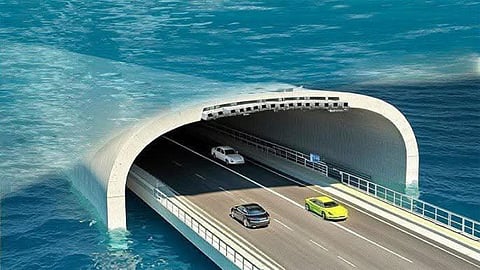

Kerala is gearing up for a major infrastructure leap — an underwater tunnel connecting Vypin and Fort Kochi. The 3 km twin-tube tunnel, planned to run 35 metres below sea level, could transform how Kochi moves. Instead of the current 16 km detour through the Goshree route or the ferry, commuters might soon glide through the seabed in less than half an hour.
At present, it takes nearly two and a half hours for a daily commuter to travel from Fort Kochi to Ernakulam’s High Court junction and back, often spending around ₹300 on fares. The tunnel could bring that down to ₹50–₹100 and cut travel time by nearly two hours. For many, that’s a potential saving of ₹1,500 a month and 60 hours in travel time — enough to make this project sound like a commuter’s dream.
The project, estimated to cost ₹2,672 crore, includes ₹1,225 crore for the bored twin-tube tunnels and ₹500 crore for land acquisition. The total length will be 2.75 km, featuring a 1.75 km bored tunnel and 1 km of cut-and-cover sections at either end. Each tunnel will have an external diameter of 12.5 metres and an internal width of 11.25 metres, with space for a highway lane and a service lane in each direction.
The tunnel’s depth will allow 20 metres of water clearance for shipping, while a 15-metre soil cushion will keep it stable and safe beneath the port’s operations. Safety features include emergency stop bays every 250 metres, escape routes every 500 metres, and ventilation systems matching international standards.
The project is inching closer to reality, with the Kerala Rail Development Corporation Limited (KRDCL) directed to invite Expressions of Interest (EOI) from firms to execute it. The construction period is expected to take around 30 months, with an additional 18 months for land acquisition. If work begins by April 2025, completion is projected for around September 2027 — though that timeline, like most megaprojects, remains to be seen.
Beyond saving time and money for commuters, the underwater route could ease congestion across Kochi’s traffic-heavy arteries. It could also support tourism and trade movement between the islands and the mainland. But much depends on how efficiently the project clears its technical and environmental hurdles.
As things stand, Kerala’s first underwater tunnel is more than just an engineering marvel in the making — it’s a peek into how the state might soon travel beneath the sea instead of above it.